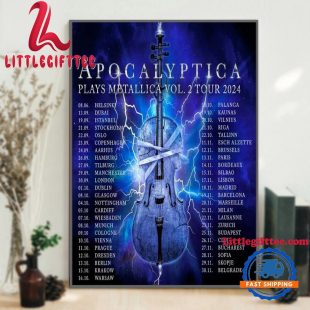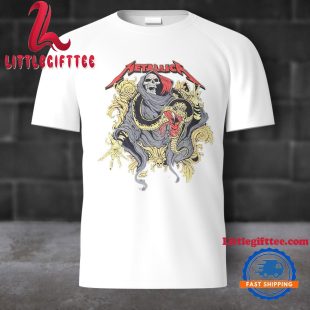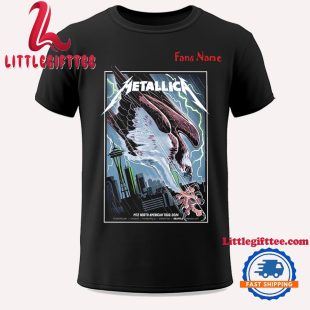Music
Is Metallica a Gay Band? An Exploration of Identity and Interpretation
The question of whether Metallica can be labeled as a gay band is both intriguing and multifaceted. This inquiry goes beyond mere curiosity, tapping into deep-rooted cultural narratives, personal experiences, and social dynamics surrounding the heavy metal genre. While Metallica has undoubtedly carved its name in the annals of rock history since 1981, their perceived relationship with LGBTQ+ identity invites scrutiny and discussion. By peeling back the layers of this narrative, we can explore how art, music, and societal norms intertwine to create a complex tapestry of interpretation.
The Origins of the Question

At the heart of the inquiry lies the band’s origins, which have significantly shaped public perception. Their roots in San Francisco—a city renowned for its vibrant LGBTQ+ community—have led many to speculate about the sexual orientations of the band members. However, it’s crucial to approach this topic from an informed standpoint, focusing on facts rather than conjecture.
The Historical Context of Metallica
Metallica burst onto the heavy metal scene in the early 1980s, at a time when the genre was beginning to embrace more diverse audiences.
The band’s connection to San Francisco serves as a backdrop to the speculation regarding their sexual orientation. While the city has long been synonymous with LGBTQ+ activism and culture, Metallica’s rise to fame coincided with significant shifts in societal attitudes toward sexuality.
As fans began to flock to their concerts, the band’s image became woven into the fabric of various cultural dialogues. However, it is essential to note that despite their geographical proximity to such a progressive hub, there is no concrete evidence suggesting that the band members identify as part of the LGBTQ+ community.
Speculation Versus Reality
Rumors often stem from misunderstandings or misinterpretations of artistic choices.
Some fans might point to specific lyrics or themes within Metallica’s discography that resonate with feelings of rebellion, isolation, or emotional struggle—elements deeply felt by many, including those within the LGBTQ+ community.
This creates a fertile ground for speculation, making it easy to conflate the resonance of their music with the identities of the band members themselves. Nevertheless, as one Quora user remarked, the lack of direct affirmation from the band suggests that any conclusions drawn are more speculative than factual.
Misinterpretations and Artistic Choices

Heavy metal, as a genre, thrives on themes that delve into the human experience—rebellion, sadness, joy, and introspection. These elements create a canvas upon which listeners paint their interpretations, leading to varied perceptions of what certain songs mean.
Exploring Themes of Rebellion
One of the hallmarks of heavy metal is its exploration of rebellion and non-conformity.
For many, these themes often evoke feelings of empowerment and authenticity, which can resonate strongly with individuals grappling with their identities.
In this sense, Metallica’s music becomes a source of strength for listeners who may find themselves on the fringes of society, regardless of the band members’ own sexual identities. The idea that their music can serve as a voice for the marginalized adds depth to the conversation about whether Metallica fits the mold of a “gay band.”
Lyrics Open to Interpretation
Metallica’s lyrics often wrestle with complex emotions, touching on issues of love, loss, and existential dread.
While some lines might appear to evoke LGBTQ+ themes—such as longing and vulnerability—the broader context reveals that these feelings are universal, transcending specific identities.
Listeners might project their experiences onto the music, which enhances the connection they feel to the songs. This fluidity in interpretation underscores the power of music to move across boundaries, creating connections between people from diverse backgrounds and orientations.
The Role of Artistic Expression
Artistic expression allows bands like Metallica to share their journeys while also opening up space for fans to explore their identities.
When artists create music, they often draw from a well of shared human experience, crafting songs that reflect their observations and emotions.
However, listeners also engage with the material through their perspectives, enabling a dialogue that enriches the experience of both parties. In this light, Metallica’s contributions to heavy metal go beyond straightforward categorization, inviting reflection on issues of identity that resonate with many, including those within the LGBTQ+ community.
Cultural Connections and Representation
Music has always played a pivotal role in shaping cultural discourse. As a result, the discussion surrounding whether Metallica can be considered a gay band inevitably touches on larger societal themes of acceptance and representation.
The Band’s Influence on Identity Formation
Many fans have reported finding their queerness or coming to terms with their identities through Metallica’s music.
The power of music as a catalyst for self-discovery cannot be understated; it often provides comfort in times of uncertainty and encourages listeners to explore their feelings.
In this way, Metallica serves as a backdrop for individual journeys, even if the band members themselves do not explicitly identify with LGBTQ+ themes. The conversations that arise from this dynamic illustrate how music can transcend traditional boundaries, impacting people’s lives in profound ways.
Social Media as a Platform for Dialogue
In recent years, platforms like TikTok and Twitter have amplified discussions surrounding Metallica and its alleged support for LGBTQ+ rights.
Fans utilize these platforms to share their stories, create content, and engage with one another about the intersection of music and identity.
While these conversations can spark greater awareness and foster acceptance, it’s important to differentiate between the intentions behind artistic work and how it gets interpreted in the court of public opinion. Often, the nuances of a band’s message can become lost in translation amid the fervor of social media discourse.
Art as a Vehicle for Change
Art, including music, has long served as a vehicle for social change.
Metallica’s influence extends beyond mere entertainment, encouraging fans to engage with themes of identity, acceptance, and personal growth.
Through their music, the band may inadvertently provide a lens through which listeners can examine their own experiences, fostering a sense of community among those who connect with the lyrics and melodies.
Personal Anecdotes and Fan Perspectives

The narrative surrounding whether Metallica is a gay band is further enriched by the personal experiences of fans. Individual stories add layers of meaning that statistics or generalizations simply cannot capture.
Community and Camaraderie Among Fans
Metallica’s fanbase is incredibly diverse, attracting individuals from all walks of life.
Fans often share anecdotes that highlight moments of friendship or camaraderie inspired by the band’s music, which reinforces the notion that music can build bridges between disparate communities.
These moments—whether sharing a laugh over an inside joke or celebrating together at concerts—create a collective identity rooted in the shared love for the band.
Interpreting Gestures and Affection
Photos or videos of band members displaying affection towards one another can lead to speculation about their relationships.
While these gestures might be playful, it raises interesting questions about how fans interpret them. The hyper-masculinity often associated with heavy metal can complicate perceptions of male friendships and expressions of affection.
This nuance invites a deeper examination of how societal norms shape our understanding of intimacy and how cultural frameworks influence interpretations of seemingly innocuous gestures.
Reflection of Societal Norms
The way fans interpret Metallica’s dynamics can reveal more about prevailing societal standards than about the actual relationships within the band.
The quest for identity and belonging is a fundamental human experience, deeply intertwined with how we perceive others.
In dissecting the layers of meaning embedded in Metallica’s work, fans contribute to an ongoing dialogue that transcends simple categorizations, promoting a broader understanding of identity, acceptance, and community within the realm of heavy metal.
Navigating the question of whether Metallica is a gay band opens the door to a rich conversation about identity, representation, and the transformative power of music. While there is no definitive evidence to categorize the band within a specific sexual orientation, the interpretations and meanings derived from their work create a complex tapestry of understanding. Through exploring themes of rebellion and emotional struggle, Metallica resonates with a diverse fanbase that spans various identities and experiences.
Ultimately, the dialogue surrounding this topic reflects broader societal shifts and highlights the ways in which art can inspire connection and introspection. Whether through personal anecdotes, cultural representations, or social media discussions, Metallica’s music continues to serve as a backdrop for exploration and acceptance in an ever-evolving landscape. In this intricate web of interpretation, fans find solace and empowerment in the music, inviting us to consider the true essence of identity in art.




















